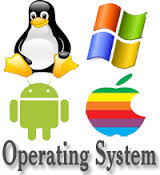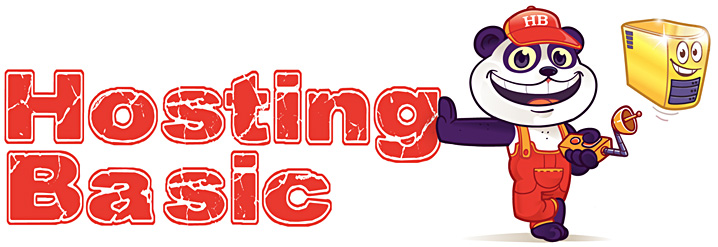Dedicated Hosting Meaning
Introduction To Dedicated Hosting
Suppose you have a website which runs your business. It is currently hosted in a shared server. The website and the income through it earns your daily bread and you cannot, by any means, allow any sort of downtime or slow loading to your website. However, with your current hosting, many a times your website is inaccessible due to issues caused by other websites. You have two options – move to a VPS or a dedicated server. However your business is growing fast and is gaining popularity, and huge traffic has started hitting your website. In such a situation, a VPS will not help you get what you need. So the only option which will save you then is a dedicated server.
What Is A Dedicated Hosting?
A dedicated hosting is a type of hosting in which the customer rents out an entire server for his use, without sharing the hardware or software resources with anyone else. He gets to use the full CPU power, full RAM, full bandwidth and everything else allotted for his own use. He has full access to the server and can play with it the way he wish, without anyone interfering. It's like living in your own house, and not sharing any properties with anyone else.
You can get dedicated server in two ways. Either you can purchase a server provided by your hosting company, and they will take care of everything associated. You will have to pay your host on a monthly basis for the server hardware and management. Another option is colocation which is cost effective. In this option, you purchase the server, required cables and all required accessories from any third party, and send it to your datacenter. The datacenter will then rent a space to keep your server, and connect the server for you. You can manage it remotely with the help of some remote management tools. Here, you need to pay the datacenter only for the rented space. Server cost is just one time.
Who Chooses Dedicated Hosting?
Many starts thinking about purchasing a server of their own, dedicated to their use in the following scenarios.
- You own a VPS but your site has started gaining more traffic and can longer be held on a VPS
- Your website requires more resources like huge RAM, heavy CPU power and very high bandwidth
- You run mission critical projects which should be always online, and hence cannot reside in a shared environment
- You run social networking sites, game servers etc which require more security and resources
- Your business expands and need a big server to meet your needs. For example, you own a webhosting business and your client base has expanded to a number that can no longer be supported on a reseller or VPS hosting plans.
- You require specific scripts installed which will generate huge load on the server
- You need high availability or load balancing setup with multiple servers
- You work with BigData
Any such scenarios can make you think of buying a dedicated server for your use. However, purchasing a dedicated server is more complicated than choosing a shared hosting. With shared hosting, you just need to sign up and don't need to think much about the technical sides. With a dedicated server, you would have a lot of questions and confusions running through your mind before purchase.

- How can I purchase a dedicated server?
- What all factors are to be considered or checked while buying a server?
- Who are the reliable providers?
- Where can I get the best offers?
- Will I get proper support for dedicated servers?
- I have heard about managed and unmanaged servers. What are they? Which one should I choose?
We will discuss these one by one, but before that, let us see what are the advantages and disadvantages of having a dedicated server.
Advantages Of Dedicated Hosting
Reliability :- With a dedicated hosting you gain more reliability. Unlike shared or VPS hosting, everything is real and there are no virtual limits or resources in a dedicated hosting. You get all the resources to yourself and can use them fully. You need to be least bothered about the issues or attacks to other websites.
Performance :- The resources available to a dedicated server is huge, whether it be in terms of CPU or RAM or bandwidth or storage. Due to this, your websites perform better and faster than in a shared environment.
Security :- In a shared environment, if other websites are infected then chances of getting your websites at risk is very high. However in a dedicated server, your files and other data are fully secure as you are the only one with access to it and also you can implement any sort of security mechanism as you wish.
Full Access :- You get complete access to your server and can disable access to anyone else. In a VPS, all though you get root access, your provider will always have access to it through the console. In the case of dedicated server, you can set a secure password and disable access to the server fully. Since you have root access, you can install and configure any software that you wish, and there will not be any restriction or limit on it.
Disadvantages Of Dedicated Hosting
Cost :- You are purchasing a server and all necessary hardware and resources for your own use, and hence the cost for the server is also high.
Technical Support :- Support for dedicated servers will be less, as compared to shared hosting. Support comes in two forms – managed and unmanaged, about which we will discuss in detail later in this post. If your servers are colocated, then support is available only for reboots. Any other changes needed to server, or any issues which needs to be looked upon by the support team would be charged extra on a per hour basis.
Server Management :- With a dedicated server comes more responsibility. You should know some technical sides of server management, and cannot rely fully on the support team. You need to take care of the server audits, security patches and server hardening also in a timely manner, or it will affect the server security badly. Unlike other hosting, you are also responsible for managing the network in a dedicated hosting. Hence, being a dedicated server owner means you are technically good and can manage any networking or server side issues that arise. Otherwise you should hire a good sysadmin or server management company to take care of your server.
Maintenance :- A dedicated server seldom crashes, but when it does, it becomes a big headache for the server owner to correct it. It indeed is a dreadful nightmare if you don't know how the hardware failures can be corrected. If you are on a colocated server, it becomes further difficult as you would need to purchase the hardware and ship it to the datacenter and then get the techs install it which is a time consuming process and your server will be down till then. If the hardware is present in the datacenter, then you can use the spares present but they will mostly charge you high for it.
Managed And Unmanaged Dedicated Hosting
When you contact any provider, they will have two types of server plans – managed server plans and unmanaged server plans and you need to make a choice among those. For that, first you need to know what does managed and unmanaged servers mean. If you are already asking that question yourself, if you do not know the difference, if you are getting ready for your first dedicated server, then probably you are a novice and you need a managed server. Let me explain the difference to you.
Unmanaged Servers – Here, the provider will get the server hardware for you, install OS, add the required IP Addresses and get your server ready for use. They will then handover this fresh server to you. With just the OS installed, you cannot get your websites up. It requires a lot more software and a lot more things to do. However, the providers' support is limited to what explained above. If you face any network issues or any hardware malfunctioning, then they will help you. Everything else is on your own.
That is why it is called an unmanaged server, as your support team will not manage the server for you. If you are an expert in the hosting field, or if you already own a number of servers and know how to troubleshoot any issues that come across, if you have a wonderful sysadmin who will solve any problem for you, then you can straight away go for an unmanaged plan. Cost wise, unmanaged servers will cost less than managed server due to lack of support.
Managed Servers – I mentioned the tasks that the provider will do for you in an unmanaged plan. Along with those, if you choose a managed plan, the provider will also install any software that your server require, install control panel, secure the server, troubleshoot any issues that come across, monitor your server for any failures, configure backups? etc etc, any tasks related to server will be handled by your support team. If you have a managed plan, it is like moving to a fully furnished, ready to move in apartment – you just need to go and start living. You can simply create websites from the control panel, upload files and your website is live and accessible to visitors. You don't have to bother about anything else. Hence, managed servers are the perfect choice for newbies. When we say managed, there will be further classifications on the types of support provided. Some managed plans will only help with serverwide installations, some might help you with control panel related issues, some might even answer your customer's queries. It all depends on the plan you are in and also it differs cost wise as well. Managed plans are costly, as there is someone available round the clock to monitor your server and they are rendering a 24X7 support on issues also to you.
How To Buy A Dedicated Hosting?
If you are a newbie in this field, then there are limitations on how much you will understand the points I mention below. Hence, I am classifying it to a novice part and an expert part.
A novice should consider the following points, and should check and make sure with your prospective provider that they would be able to fulfill your requirements.
- Location – To which location do your customers belong? You should first target the audience, and then choose
 ? a server location based on that so that your websites are rendered pretty fast to your visitors. If you own a business in Singapore, and your customers are expected to be mostly from that location, then check with your provider if they could provide a server at Singapore location. Most providers will have servers at various datacenters across the globe, so that should not be a problem.
? a server location based on that so that your websites are rendered pretty fast to your visitors. If you own a business in Singapore, and your customers are expected to be mostly from that location, then check with your provider if they could provide a server at Singapore location. Most providers will have servers at various datacenters across the globe, so that should not be a problem. - Disk Space – You should know approximately how much space is required for your business/projects. If your business requires 300G or less space, then you can order a 500G server. There is no need for a 1T server, and you can reduce cost there. G stands for Gigabyte and T stands for Terabyte where they are bigger dimensions by which size or space usage is measured. So, first identify how much space is required for your files/databases/emails together and then get a quote from your provider based on that.
- Expected traffic – You would already have a basic idea of approximately how many visitors might hit your website at a time. There are chances that it might increase drastically, and you should have a figure in mind – say for example, 1000 visitors per day or 1 lakh visitors per month etc. Based on the traffic, your provider would be able to advise you how much bandwidth would be required for your server. You can start with a smaller value and upgrade as required. Bandwidth is an important term you should know when you use a server. Bandwidth can be explained simply as the amount of data transmitted from/to your server.
- Operating System – Servers can be purchased with OS pre-loaded. You can choose a
 windows server or a linux server or any flavor depending on your requirement. If your website is done in asp.net, c#.net or any such microsoft platforms, then you would need a windows server itself. If your website is done in php, then a linux server would be best for you. The main advantage of having a linux server as opposed to windows is the license cost. Windows is costly, whereas linux is either free or less costlier than windows. So talk to your provider and inform them which OS is required.
windows server or a linux server or any flavor depending on your requirement. If your website is done in asp.net, c#.net or any such microsoft platforms, then you would need a windows server itself. If your website is done in php, then a linux server would be best for you. The main advantage of having a linux server as opposed to windows is the license cost. Windows is costly, whereas linux is either free or less costlier than windows. So talk to your provider and inform them which OS is required. - Cost – The most important factor you would be concerned about is the total cost to the server. Most providers would provide you the plan based on the hardware used, processors, memory, disk space, bandwidth and various other features that I am mentioning here. You should not go for the cheapest option always, because the cheapest might mostly mean cheap service as well(there are exceptions though). You would also see a lot of unlimited plans as well, but beware – they are just marketing terms used to attract customers. Behind the scenes they are always limited and the company's Terms of Service would have the loop holes listed. Always compare the server specifications you choose among a few providers, and go for the best affordable option.
- Support – Since you are a newbie, you are definitely going to need support. So make sure your provider has a friendly and responsive support team on board, who are ready to extend their helping hands to you at any time,? round the clock. Check with the provider regarding their SLA(Service Level Agreement) or response time. It is the time within which any of your support tickets are expected to receive an answer. A good support team is a major requirement.
- Money Back – You should never sign up with a provider whom you havn't? used before,
 on long term payment plans. Many providers will have offers and discounts on rates if paid annually, biennially, triennially etc. Don't go for it if you haven't tried them ever or you have no idea how their service is. Always pay for a month and also see if they have any money back policies available. This will help you test your provider at minimum financial risk. The dedicated servers being costly, money back options are very rare, however there would be a few who offers it.
on long term payment plans. Many providers will have offers and discounts on rates if paid annually, biennially, triennially etc. Don't go for it if you haven't tried them ever or you have no idea how their service is. Always pay for a month and also see if they have any money back policies available. This will help you test your provider at minimum financial risk. The dedicated servers being costly, money back options are very rare, however there would be a few who offers it. - Reviews – Once you have shortlisted a few providers, you should always search for their reviews to see if their current customers are saying good or bad about them. Based on our experience, we have summed up a review section in our website which provides the reviews of many hosting companies. Go through a few of them and get an idea about your provider. Reputation of the provider do mean a lot.

- Speed Test – All providers might not give you this, but a few might give you links to test the speed of their network. Just check with them and see if the speeds are acceptable.
The above points are meant for helping a newbie on selecting a server and provider. If you are an expert, or you know something technically, then you should consider the following factors too (in addition to what mentioned above).
- Redundancy – Do they provide security to the data on your server? The best thing they can provide you is a server with RAID (Redundant Array of Inexpensive Disks). It is actually a mechanism by which two or more disks are combined into a single logical unit, there by providing data redundancy, performance improvement etc. If the server has a good RAID setup, then even if one your hard disk crashes, your data can be retrieved without issues.
- Memory – You should know how much memory is required for the server. This is based on how resource intensive your website scripts are, how much traffic is expected to handle at a time etc. If your scripts cannot be run within the allocated memory, your server will go down with Out of Memory Error. If you are on? a VPS, start with 2G RAM. If you are on a dedicated server, a minimum 8G would be fine. Memory can be upgraded any time by contacting your provider.
- Network Port Speed – Most providers provide 100Mbps port, which would do mostly for normal servers. However if you require a faster network, check for providers who offer 1Gbps port speed.
- SSD Hard Disk – The latest trend is to use SSD hard disks, which improves the speed and performance of your server drastically over the normal HDD. It would be worth to choose an SSD provider.
- Processor – When it comes to processors, Intel E3 or E5 processors are considered to be the best for servers. There are a lot of factors to be considered, the main being the clock speed, number of cores etc.
- Backup Options – Always check with your provider regarding the backup options. If your data do not have proper backups, then you are at high risk. A server is just a piece of hardware which can crash or stop working all of a sudden. If you have proper backups of your data, there is nothing to worry even if your server crash. You can restore it from your backups. It is also advisable to keep local backups, and not just blindly believe the provider's backups. Also, check with the provider how they are taking the backups. It should be to a separate hard disk or to a remote server, otherwise your backups also will vanish with the failed drive. Most providers will bill you extra for backups, but it is a mandatory requirement.
- DDOS Protection – Attacks against server is very common these days. Attackers are hidden all over, checking for new servers to target their attacks. DDOS means Distributed Denial of Service attacks. Such attacks occur from a large number of IPs at a time, making it very difficult to control. If your provider has DDOS protection enabled, then such attacks can be controlled. Otherwise, your server will undergo huge downtimes, due to DDOS attacks.
- Remote Management Tools – Suppose your server went down, and you or your server admin wants to take a look at what happened. Your server is down and is not accessible, so how are you going to check what happened? That is where the remote management tools like IPMI(Intelligent Platform Management Interface) or KVM(Keyboard, Video & Mouse) are going to help you. They are small devices attached to your server via which you can access the server and work on it, even when it is down. With the help of those tools, you can reboot your server, see it booting, and also check the logs and correct any problems noticed. If your server provider will help you in bringing the server online, then it is fine, but sometimes they would charge high for that. So if you have any such tools available, you can correct the problem yourself without paying an extra penny.
So, now you at least know a few things you should check with the provider before buying a server. I am sure you won't sound dump or an idiot when you contact them now, and they wouldn't be able to make you just buy any server of their choice,? but they would have to provide you a server based on your requirements.
Recommended Dedicated Hosting Providers
To help you with search, we are listing down a few stable providers who we think are reliable. There are a lot of? providers who are good and reliable and affordable, and we are listing just a few below. You can read reviews on these hosts at the Hosting Review section of our website.
Getting the best Quote !
 Cost is an important factor when it comes to any sort of buying. Many hosts these days run special discounts and coupons for promotion. We have tried to add the discount coupons of a few providers in our website. Please visit the “Hosting Coupon” section of our website for getting the latest discount coupons.
Cost is an important factor when it comes to any sort of buying. Many hosts these days run special discounts and coupons for promotion. We have tried to add the discount coupons of a few providers in our website. Please visit the “Hosting Coupon” section of our website for getting the latest discount coupons.
